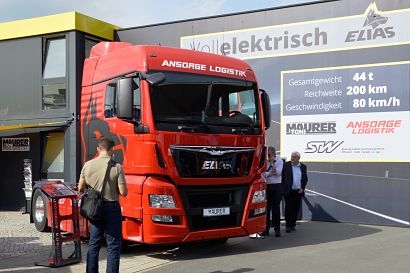
RILA, Atlas Public Policy, the Centre for Climate and Energy Solutions (C2ES) and David Gardiner and Associates (DGA) collectively formed a strategic partnership to explore the landscape and outlook for electrified trucking options for medium- and heavy-duty vehicles, publishing a fleet procurement analysis tool for companies and two reports identifying financial barriers and insights for retailers and trucking companies.
The assessment of financial barriers for medium- and heavy-duty electric vehicles (EV) found:
Cost competitiveness can be achieved in the current market when supported by low cost charging and vehicle incentives;
While most EV procurement scenarios were not likely to be cost competitive with diesel options today, low cost charging, in this case offered by charging infrastructure that is owned and operated by the fleet, and vehicle incentives substantially improve EV cost competitiveness; and
Depot charging was critical to EV cost competitiveness as a result of lower charging costs than the public charging options modeled, avoidance of productivity losses by charging during regular downtime, and providing control over the number and type of charging stations.
Since medium- and heavy-duty electric vehicles are relatively new to markets, the analysis also provides independent evaluation of upfront and operational costs and a fleet procurement analysis tool to help retailers and logistics companies better assess the opportunities of decarbonising freight movement.
Companies will now have access to a free, publicly available tool developed by Atlas Public Policy to better inform business decisions. It provides ‘plug-and-play’ usability for an easy total cost of ownership analysis of how electric truck adoption – from local delivery to cross-country freight – affects a business’s bottom line. The tool takes into account upfront and operational costs to offer realistic expectations and planning resources to help companies answer key questions in making electrification cost competitive.
A separate brief from C2ES offers an assessment of the state of play for electrified trucks as retailers and logistics companies explore options to reduce emissions from shipping and freight delivery. C2ES interviewed companies that have started to test electric trucks within their existing businesses to test the technology benefits, barriers, and costs that come with deploying electric vehicles. These pilots allowed companies to evaluate whether to shift operations and maintenance programs in the future to adjust to a transition from diesel to electric. While companies pointed to a need for charging infrastructure and incentives as an industry-wide challenge, they also recognized the long term environmental and health benefits of EVs.
“Retailers spend an enormous amount of time and resources optimising their supply chain infrastructure to best serve their customers and protect the environment” said RILA Vice President of Supply Chain Jess Dankert. “Increasingly, that includes evaluating and investing in innovations like electric vehicles. The Fleet Procurement Analysis Tool helps make a key factor in that decision-making process – cost – more accessible and offers companies a holistic view of what that investment could mean for both their bottom line and their long-term climate commitments.”
David Gardiner, President of David Gardiner and Associates, added that the reports outline a clear roadmap to make electric trucks cost effective and that to get more electric trucks on the road, the costs of the trucks need to be lowered and and charging stations made convenient and inexpensive.
For additional information:

